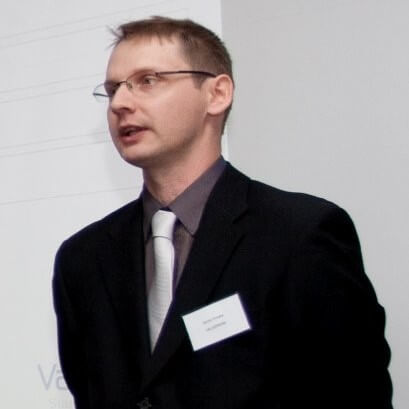Visma Solutions Oy is a software company with around 300 employees. Our simulation was attended by very experienced trainers. That's why we chose Biases in thinking -simulation because this group needed to be challenged in their thinking and as coaches we were already familiar with other topics. We chose SmoothTeam after hearing good experiences with it and, above all, because it was an interesting and topical subject for us. We were not aware of any other tools that worked well for dealing with thinking deficits together.
We strongly believe in self-direction
We are making a big change in our internal organisation. Our aim is to become a more agile company by moving towards a more pre-employment approach. To do this, we wanted to open up the debate about what biases in thinking might prevent us from seeing the other's truth. At the same time, we wanted to gain a perspective on thinking outside the box.
We strongly believe in self-direction: leadership gives direction and people know how to make smart decisions. Against this background, it is important to try to understand the motives of others and what prejudices or attitudes may be behind them.
Often when you have a team day or similar, it is easy to end up with a general discussion for a long time without any structure or objectives. Free discussion is always valuable, but the simulation provided a clear framework for the discussion and a good guide to talking together about a chosen topic.
Simulation led to deep discussions
Some of the participants have been in Visma for decades, but there were also some newcomers. The aim was also to get to know each other. Cognitiveimpairment is a demanding topic, and before the simulation we talked about it for more than half an hour. Some of us had experience with the subject and we also shared stories.
Understanding cognitive biases is important in the workplace and addressing them is also a topic of interest to participants. Understanding these biases will support further collaboration and the fact that everyone opens up their own thinking is more important than the outcome of this discussion. The discussions were interesting and deep. It is hard to imagine how else one would start talking about these topics in free discussions, at least in a self-critical way.
Understanding basic motives builds trust
Especially in a leadership team, it is important that we understand each other's thinking, even if we don't always agree. We want to build an environment of trust where we can discuss freely. An understanding of colleagues' underlying motivations helps to develop this.
We broke down stereotypes, learned about each other and saw blind spots
The simulation broke down stereotypes. It's easy to think that sales, for example, are only interested in certain things. However, we have similar customer value objectives in sales, product development or HR and we all need to understand them and work towards a common goal. Self-direction is not about throwing things away, but about moving together in the right agreed direction. Breaking down stereotypes helps to chart this direction together.
During the simulation, there were several surprises when someone had rated as a weakness half of what others had seen as their strength. An example could be a situation where someone said they were working with a prejudice - and this had even been seen by others as a strength. This opened up good conversations where we learned about ourselves as well as each other.
As another example, we found that there are things that I thought were better than they actually are. An example of this is the information retrieval bias, which I did not initially identify as a significant issue for us - however, a joint assessment of the simulation revealed more detail about the background. The overwhelming feeling is that even though the decision has in principle already been made, we still want to gather evidence to support it, even if it does not change the fact of the decision. This is an example of a blind spot that we all have and which the simulation helps to illuminate.
The simulation also introduced people to each other in a very concrete way. We had people among us who had never met physically. Now we were able to have good conversations, and during the simulation the video-conferencing did not hinder this at all.
I recommend SmoothTeam to teams where cooperation, motivation and enthusiasm are important
We are a software company ourselves, where we are quite open and simulations suit us really well. SmoothTeam's simulations work particularly well for specialist companies, for example, where people skills are central and people work together. Then it's all about the people being motivated and also enthusiastic about their work.

Jarmo Annala
Netvisor Product Line Manager
Visma


